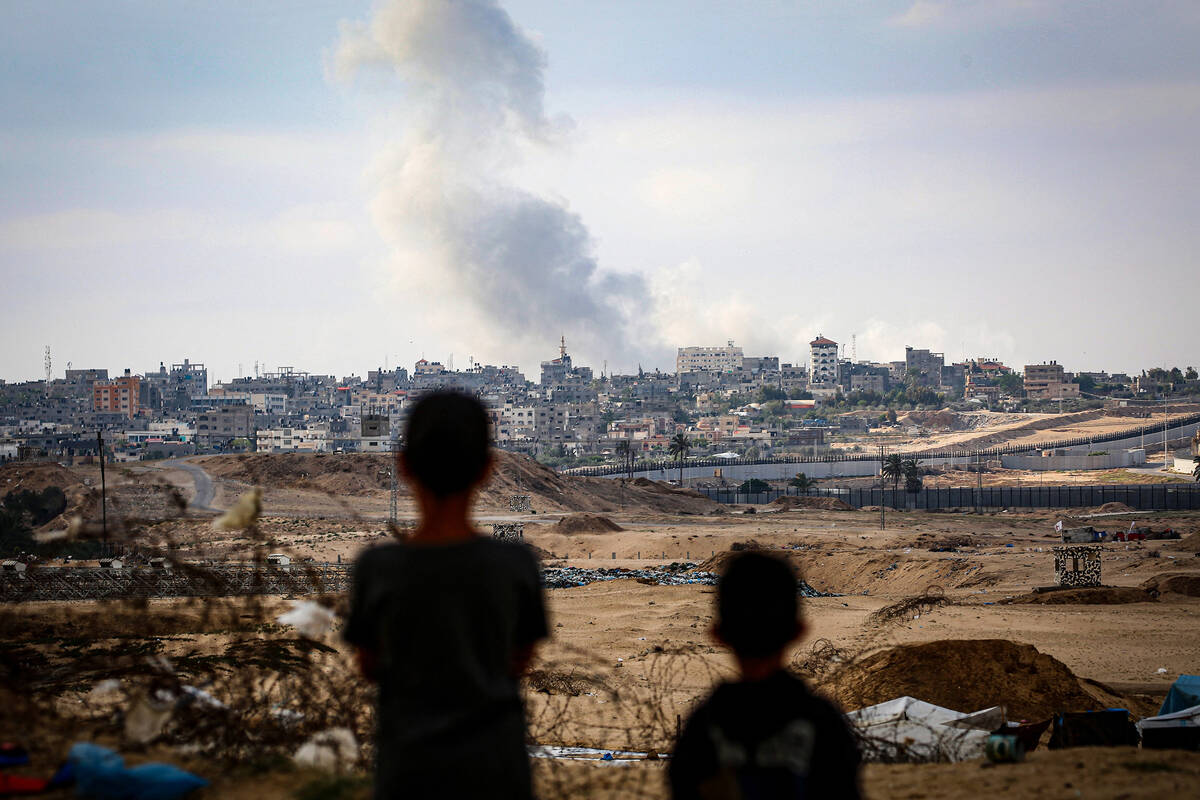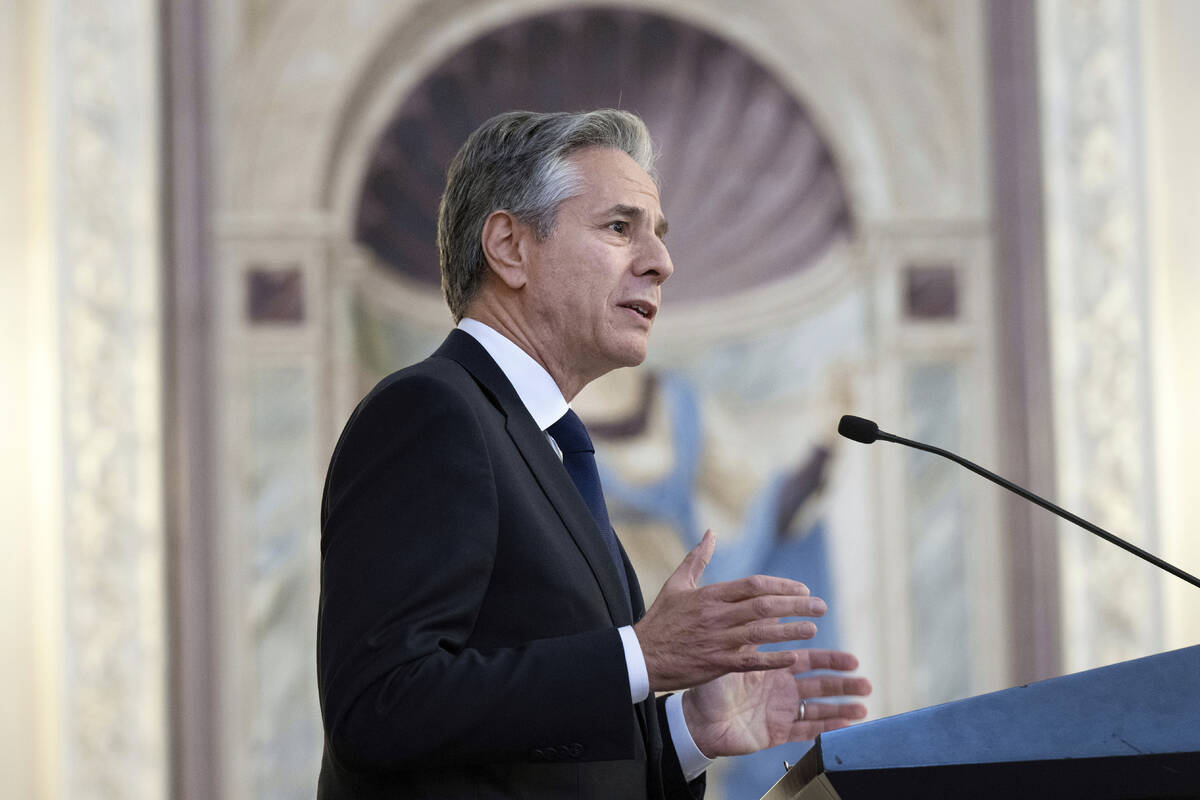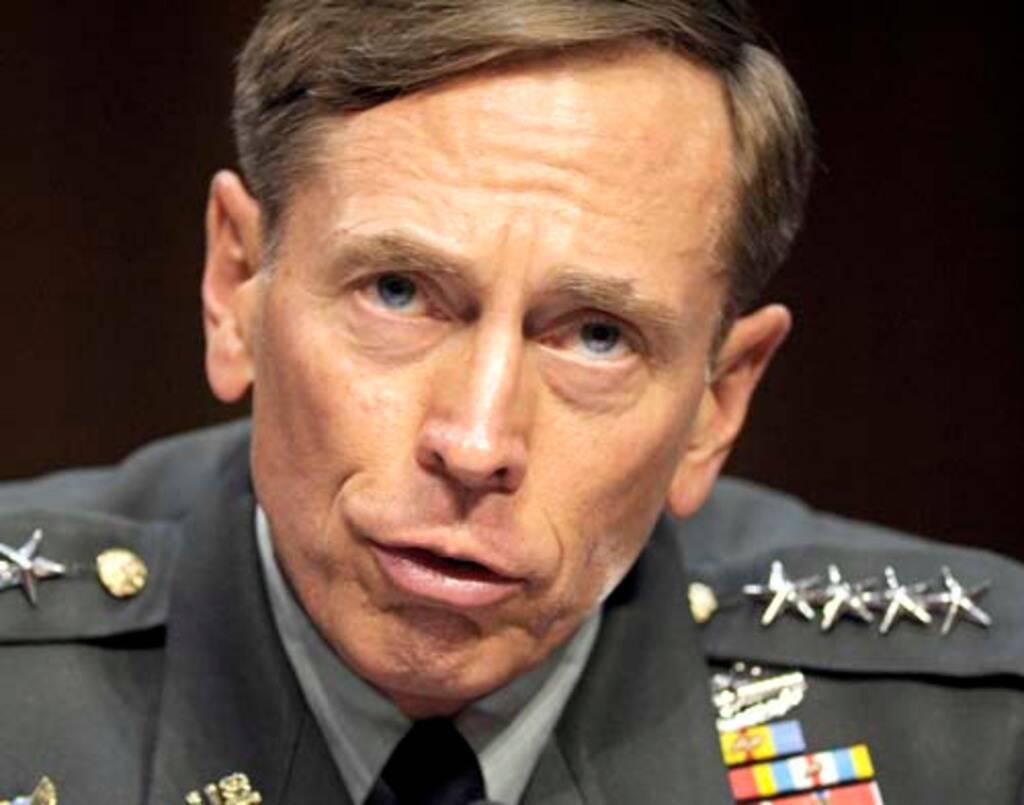US seeks post-war plan, says Israel risks Gaza power vacuum
The U.S. warned Israel it risks creating a power vacuum across swaths of Gaza and urged the country’s leaders to focus more on post-war planning for the Palestinian territory.
“We can’t have anarchy and a vacuum that’s likely to be filled by chaos,” Secretary of State Antony Blinken told reporters on Wednesday during a trip to Kyiv, Ukraine.
He spoke as Israeli forces battle in areas of northern Gaza — including Jabalia, near Gaza City — that were cleared of Hamas terrorist fighting units months ago, underscoring the group’s ability to reassemble. That’s led to some criticism of Israel’s tactics of rapidly moving troops out of areas when Hamas has been routed.
Part of the problem is that Israel lacks the manpower to hold and administer large parts of Gaza. The country of just under 10 million people mobilized a record 350,000 reservists soon after the war started in October — something that strained its economy. It released most of them late last year or in early 2024, leaving around 150,000 regular troops in the military.
“You have to clear and hold,” former U.S. General David Petraeus, who commanded armies in Iraq and Afghanistan, said at the Qatar Economic Forum. “If you don’t keep the enemy from reconstituting and keep it from getting back into the population, this is going to happen endlessly. You’ll just clear and have to re-clear and re-clear.”
Petraeus, speaking to Bloomberg Editor-in-Chief John Micklethwait, said the U.S. experience of urban warfare in Iraq showed you had to “keep the enemy away from the people” by ensuring aid got to devastated areas quickly and by maintaining security when fighting stopped.
He cited Al Shifa hospital, one of the largest in Gaza, and said Israel should have held onto it after battling Hamas and turned it into “a great medical center.”
Blinken said the fighting in the north of Gaza in recent days underscored the need for a “day after” strategy. Petraeus, who was in Israel about a month ago and regularly speaks to serving officials there, echoed those words, saying: “I don’t see a mid-term plan.”
Israel said it doesn’t want to occupy Gaza and has suggested Arab countries can provide peacekeepers when the war ends. But no government has said it will consider that.
“Nobody wants to take over territory that’s essentially ruled by thugs right now, gang members and remnants of Hamas,” said Petraeus, who’s a partner at private equity giant KKR & Co.
Israel launched a bombardment of Gaza after fighters from Hamas — designated a terrorist organization by the U.S., Canada and the European Union — swarmed into southern Israeli communities on Oct. 7, killing 1,200 people and taking about 250 hostage. Israel’s air campaign and a ground assault have killed more than 35,000 Palestinians, according to the Hamas-run Health Ministry in Gaza.
Israeli troops initially concentrated on northern parts of the Mediterranean enclave, including the biggest urban area of Gaza City, before moving south. They’re now mostly focused on Rafah, a city on the border with Egypt that’s housing more than roughly half Gaza’s population.
Last week, Israel told civilians in parts of Rafah to leave ahead of a possible full-on assault. Around 600,000 of them have moved north toward tented camps that Israel has declared safe zones, according to the United Nations.
The U.S. and other countries, fearing mass casualties, have tried to convince Israel not to attack Rafah. Prime Minister Benjamin Netanyahu says it’s necessary to defeat the last Hamas battalions, with several thousand terrorist fighters thought to be in the city.
























